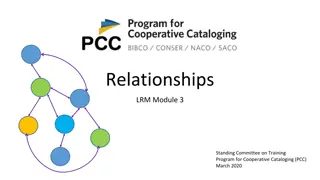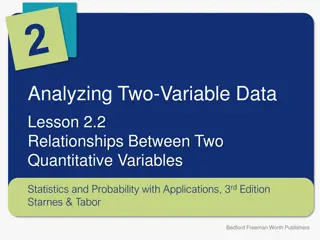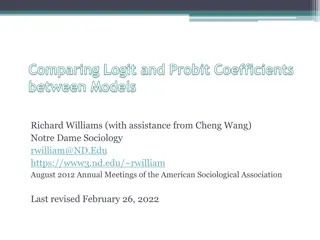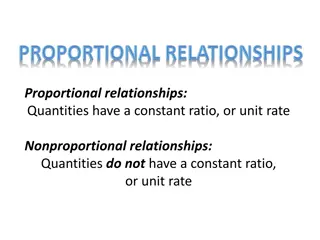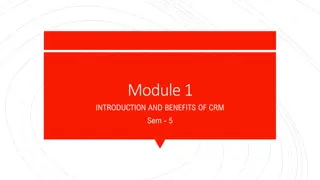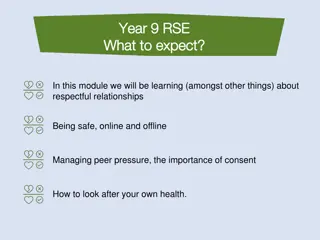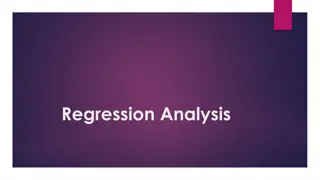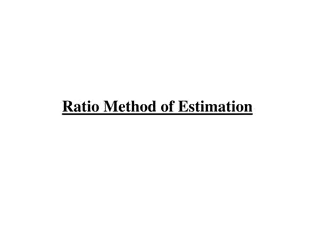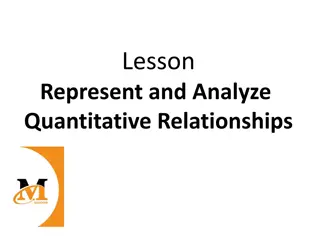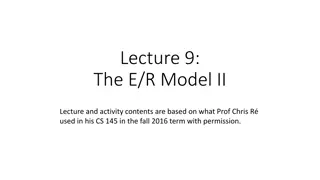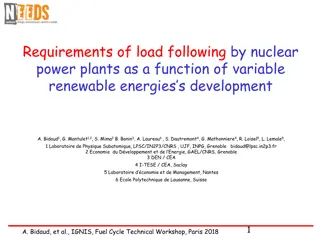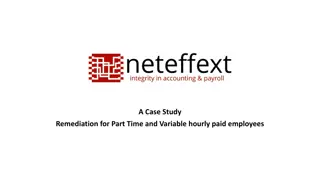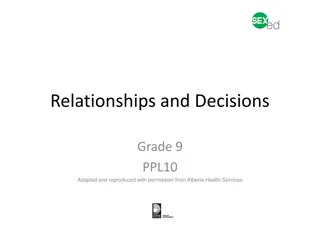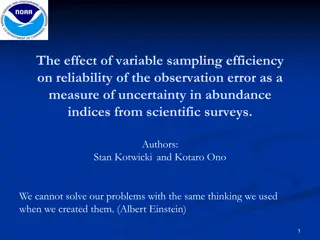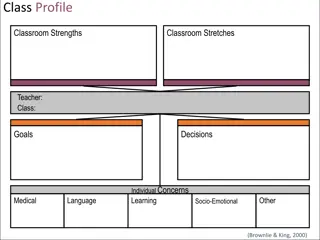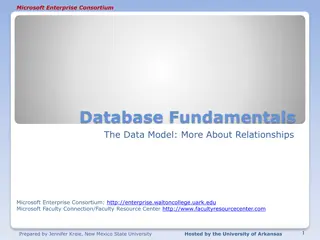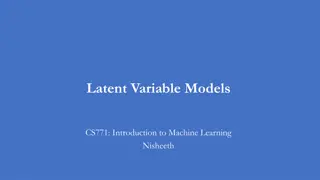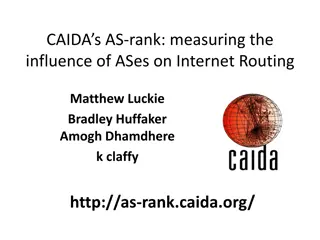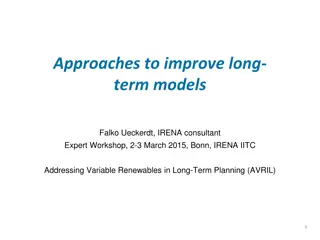Understanding Investigations in Science
Investigating in science involves various approaches beyond fair tests, such as pattern-seeking, exploring, and modeling. Not all scientists rely on fair tests, as observational methods are also commonly used. The scientific method consists of steps like stating the aim, observing, forming hypothese
1 views • 20 slides
Importance of Relationships in Professional Learning Framework
Relationships are crucial for the wellbeing, learning, and behavior of Scotland's learners. This resource, designed by @ESInclusionTeam, emphasizes the significance of fostering strong, trusting relationships between educators and learners. It provides slides for facilitating professional learning s
3 views • 21 slides
Understanding the Concept of Return to Factor in Production Economics
Return to Factor is a key concept in production economics that explains the relationship between variable inputs like labor and total production output. The concept is based on the three stages of production - increasing returns, diminishing returns, and negative returns. By analyzing the behavior o
0 views • 7 slides
Understanding Relationships in Bibliographic Universe
Relationships in bibliographic universe connect entities, providing context through entity-relationship models like IFLA LRM. Learn key terms, principles, and diagrams to identify relationships defined in IFLA LRM. Explore domains, ranges, inverse, recursive, and symmetric relationships. Enhance you
0 views • 23 slides
Training Module on Intimate and Sexual Relationships in Secondary Schools
This training module on intimate and sexual relationships in secondary schools covers teaching strategies, safeguarding, and examples of good practice. It aims to enhance educators' confidence in addressing intimate relationships and sexual health, aligning with statutory guidance. The module emphas
0 views • 105 slides
Analyzing Two-Variable Data in Statistics and Probability
This content delves into analyzing relationships between two quantitative variables in statistics and probability, focusing on distinguishing between explanatory and response variables, creating scatterplots, and interpreting the strength and form of relationships displayed. It emphasizes the import
0 views • 14 slides
Comparing Logit and Probit Coefficients between Models
Richard Williams, with assistance from Cheng Wang, discusses the comparison of logit and probit coefficients in regression models. The essence of estimating models with continuous independent variables is explored, emphasizing the impact of adding explanatory variables on explained and residual vari
1 views • 43 slides
Importance of Relationships & Sex Education in Primary Schools
Effective Relationships and Sex Education (RSE) in primary schools is crucial in addressing the changing dynamics of the modern world. With updated curriculum guidelines, children are taught age-appropriate information on growth, reproduction, and relationships. RSE aims to equip students with essen
0 views • 17 slides
Understanding Proportional and Nonproportional Relationships in Mathematics
Proportional relationships involve quantities having a constant ratio or unit rate, while nonproportional relationships lack this constant ratio. By examining examples such as earnings from babysitting and costs of movie rentals, we can grasp the differences between these two types of relationships.
2 views • 6 slides
Building Respectful Relationships and Responsive Engagement in Early Childhood
Responsive engagement in early childhood education involves building respectful relationships with children and families, emphasizing their strengths and interests. Two case studies highlight the importance of being attuned to children's needs and promoting positive relationships between parents and
0 views • 20 slides
Understanding Relationships in Business: Stakeholders, Dynamics, and Cooperation
Exploring the intricate web of relationships in business, this content delves into the dynamics between stakeholders such as workers, managers, entrepreneurs, investors, and customers. It discusses the nuances of cooperative and competitive relationships, dependent relationships, and dynamic interac
0 views • 23 slides
Understanding Customer Relationship Management (CRM)
Customer Relationship Management (CRM) is crucial for businesses to build and maintain relationships with their customers. It involves collecting and analyzing customer data, implementing strategies to meet their needs, and fostering long-term relationships. CRM benefits both businesses and customer
0 views • 30 slides
Exploring Complex Relationships Through Literary Analysis
In the essay reflections provided, the complex relationships and dynamics between Hector & Andre, as well as Sadako, Mr. Endo, and Harry are analyzed through literary elements and techniques. The narrative delves into the emotions, conflicts, and various communication methods that reveal the intrica
1 views • 6 slides
Understanding Healthy Relationships in Year 9 RSE Module
Explore topics on respectful relationships, online safety, peer pressure, consent, and self-care in the Year 9 RSE module. Learn about healthy and unhealthy relationships, identifying signs, and providing advice in various scenarios. Engage in activities to understand the importance of positive conn
0 views • 23 slides
Understanding Regression Analysis: A Statistical Tool for Relationship Measurement
Regression analysis is a statistical technique developed by Sir Francis Galton in 1877 to measure the relationship between variables, one dependent on the other. This analysis helps estimate unknown values of a dependent variable based on known values of an independent variable. It is widely used in
0 views • 10 slides
Understanding Marginal Costing in Cost Accounting
Marginal Costing is a cost analysis technique that helps management control costs and make informed decisions. It involves dividing total costs into fixed and variable components, with fixed costs remaining constant and variable costs changing per unit of output. In Marginal Costing, only variable c
1 views • 7 slides
Ratio Method of Estimation in Statistics
The Ratio Method of Estimation in statistics involves using supplementary information related to the variable under study to improve the efficiency of estimators. This method uses a benchmark variable or auxiliary variable to create ratio estimators, which can provide more precise estimates of popul
0 views • 30 slides
Understanding and Representing Quantitative Relationships
Explore how to represent and analyze quantitative relationships using graphs, tables, and equations. Practice with unit rates, plotting points in a coordinate plane, and understanding independent and dependent variables. Develop skills in creating equations, tables, and graphs to model relationships
0 views • 120 slides
2020 Company Confidential - Add-Ons and Variable Properties Guidelines
This document provides guidelines for add-ons and variable properties within the context of the 2020 Company Confidential data. It covers various aspects such as variable validations, logic return types, export/import considerations, and the handling of accessory items. The content emphasizes the pr
0 views • 39 slides
Updated Disclosure Rules for Financial Relationships in Continuing Education
ACCME updated its Standards for Integrity and Independence in Continuing Education, requiring disclosure of financial relationships with specific "ineligible companies" by all involved parties. The rules aim to enhance transparency and mitigate conflicts of interest in accredited continuing educatio
1 views • 5 slides
Best Practices for Disclosure of Financial Relationships in Educational Events
Ensuring transparency in educational events by disclosing financial relationships is crucial. This involves highlighting relevant financial relationships of planners, speakers, and others involved, and stating whether they have been mitigated. Examples and templates for disclosures are provided, gui
0 views • 6 slides
Understanding E/R Model Considerations and Relationships
Explore the E/R model considerations and relationships like multiplicity, multi-way, conversion to SQL, and more. Learn about modeling purchase relationships and the significance of arrows in multi-way relationships. Understand the challenges in expressing constraints like every person shopping at m
0 views • 29 slides
Load Following by Nuclear Power Plants in Relation to Variable Renewable Energies' Development
The study explores the requirements of load following by nuclear power plants in the context of variable renewable energies' growth. It discusses the impact of renewable energy development on nuclear economic models and the need for dispatchable capacities. Benchmarks are set to test robustness of d
0 views • 11 slides
Python Basics: Comments, Variable Names, Assignments, and More
Learn about the basics of Python programming, including the use of comments to explain code, defining variable names, type conversion, assignment operators, and general guidelines for coding practices. Explore how to effectively use comments to describe code functionality and understand the signific
0 views • 21 slides
The Realistic Portrait of Ministry: Good Relationships and Bad Partnerships
Exploring the themes of ministry, good relationships, and bad partnerships in the context of Second Corinthians. Paul emphasizes the importance of living distinctly as followers of Christ, maintaining spiritual purity, and navigating relationships with believers and unbelievers. The lesson underscor
0 views • 34 slides
Comprehensive Relationships, Sex, and Health Education Syllabus Presentation
This syllabus presentation covers six main areas including relationships, consent, human sexuality, online safety, and sex education. It aims to educate students on understanding healthy relationships, consent in all types of relationships, human sexuality, online safety, and sex education facts and
0 views • 12 slides
Remediation Strategies for Part-Time and Variable Hourly Employees in Holiday Act Compliance
This case study delves into the challenges faced in managing leave liabilities for part-time and variable hourly employees under the Holidays Act 2003. It explores various working profiles such as split shifts, cycle shifts, variable shifts, and seasonal work, presenting issues in calculating leave
0 views • 18 slides
Exploring Data Relationships and Variables in Everyday Life
Discover the importance of data in decision-making, interpretation, and answering questions through examples of one-variable and two-variable data sets. Learn about independent and dependent variables, and how to graph data to visually represent relationships. Dive into real-world examples like spec
0 views • 19 slides
Understanding Endogeneity and Instrumental Variable Estimation Methods
Endogeneity in econometrics can create challenges such as omitted variables bias, measurement error, simultaneous causality, and using lagged values. This can affect the accuracy of models. One way to address this is through instrumental variable estimation methods. These methods help deal with endo
0 views • 42 slides
Understanding Healthy Relationships and Sexual Decisions
Explore the definitions of healthy and unhealthy relationships, abstinence, virginity, and factors influencing sexual decisions. Learn about the benefits of relationships, characteristics of healthy vs. unhealthy relationships, and the distinction between abstinence and virginity. Discover that bein
0 views • 12 slides
The Importance of Effective Communication in Healthy Relationships
This module from the Welcoming Warriors Home Manual focuses on helping veterans understand healthy relationships and effective communication skills to nurture positive connections with their partners. It addresses conflict resolution, cultivating healthy relationships, repairing relationships after
0 views • 11 slides
Understanding Linear Functions: Slope and Changes in Variables
Linear functions and their relationship to slope are explored in this content. Understanding how changes in the independent variable affect the dependent variable is key to interpreting linear relationships. Through visual representations and explanations, this content illustrates the concepts of li
0 views • 23 slides
Understanding and Promoting Healthy Youth Relationships for Preventing Domestic Violence
Creating transformational change through primary prevention strategies is crucial to ending domestic violence. The SHIFT project focuses on stopping first-time victimization and perpetration by promoting healthy relationships, families, and communities. Initiatives like The Fourth R: Healthy Relatio
0 views • 29 slides
Understanding Variable Sampling Efficiency in Scientific Surveys
Exploring the impact of variable sampling efficiency (qe) on the reliability of observation error in abundance indices from scientific surveys. Authors delve into the complexities of survey design, factors affecting qe, and the need to adapt to variable efficiency. Studies show both random and non-r
0 views • 29 slides
Youth Relationships & Sex Education Survey 2022 Key Findings Report
The Young People's Relationships & Sex Education Survey 2022 gathered insights from 3,676 responses, focusing on the views of young individuals aged 11-25. Key findings indicate a preference for information on healthy relationships, consent, sexual health services, and online safety. The report emph
0 views • 31 slides
Exploring Linear Relationships in Grade 8/9 Math Curriculum
Delve into the world of linear relationships in Grade 8/9 Math curriculum, where students learn to identify, represent, analyze, and apply two-variable linear equations. Through a variety of activities and goals focused on reasoning, communication, and self-regulation, students develop a deep unders
0 views • 7 slides
Understanding Microsoft Enterprise Consortium Database Relationships
Explore the fundamentals of data models, relationships, and cardinality in the Microsoft Enterprise Consortium Database. Learn about entities, attributes, identifiers, and the different types of relationships like one-to-many, many-to-many, and one-to-one. Gain insights into the degree of relationsh
0 views • 10 slides
Understanding Latent Variable Models in Machine Learning
Latent variable models play a crucial role in machine learning, especially in unsupervised learning tasks like clustering, dimensionality reduction, and probability density estimation. These models involve hidden variables that encode latent properties of observations, allowing for a deeper insight
0 views • 10 slides
Understanding AS Relationships in Internet Routing
Exploring the complex ecosystem of AS relationships in Internet routing, the CAIDA's AS-rank project measures the influence of ASes through customer cones and validates the relationships for accuracy. The ground truth summary provides insights into the types and distribution of AS relationships, hig
0 views • 14 slides
Enhancing Long-Term Energy Models for Variable Renewables
Explore approaches to enhance long-term energy models for integrating variable renewables in long-term planning. Key aspects include improving generation networks, ensuring sufficient capacity and reliability, flexibility, robustness to contingencies, and security considerations. Temporal matching o
0 views • 22 slides



